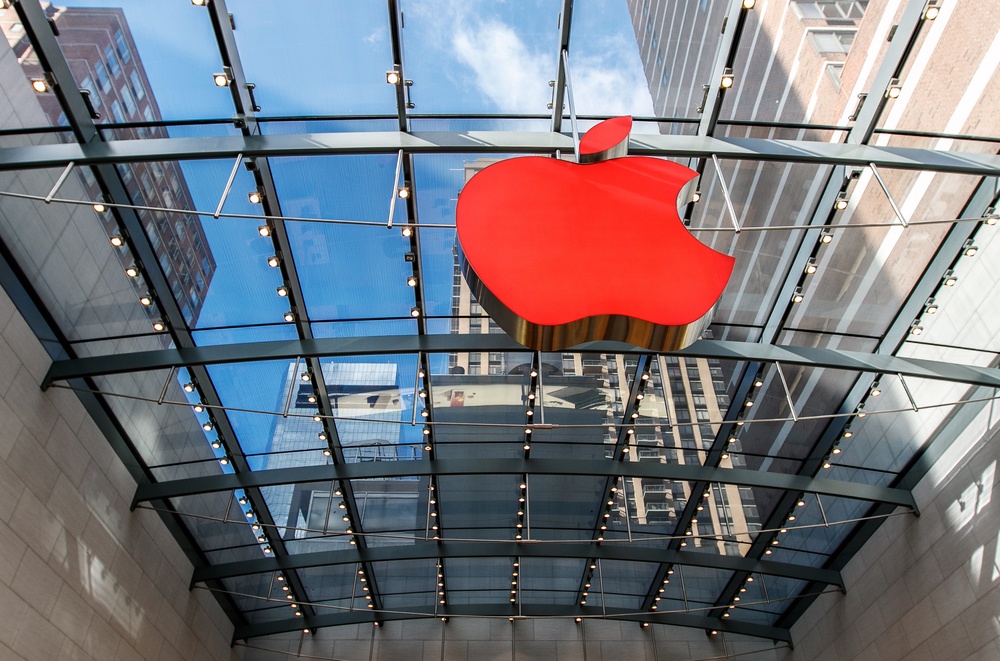Apple’s Stock Could Crash and Take the Broader Market Down Too

While Apple's stock is solid for the long term, its vulnerability to the U.S.-China trade war could harm the overall stock market. | Source: Shutterstock
By CCN.com: Morgan Stanley analyst Katy Huberty delivered mixed messages regarding Apple’s stock this week.
With Apple’s stock closing at $178 on Thursday, she downgraded the price target from $240 to $231.
She did not change her revenue or profit estimate though and then noted that AAPL could trade as low as $160 in the near-term.
Confusion Reigns in Apple’s Stock
These contradictory signals reflect the market’s confusion as far as what to do with Apple’s stock in the near term even as its long-term health seems robust.
Investors are terrified that tariffs will be slapped on Apple goods. That could mean lower iPhone sales.
It might also cause cause problems since the tech giant benefits from lower Chinese manufacturing costs.
On the other hand, all is not lost. As Huberty points out:
“In the event Apple is unsuccessful in persuading the [U.S. trade representative] to remove key categories from the final list of taxed goods, Apple’s representative will have to submit a request for each particular product they’d like to be excluded and provide a rationale as to why it should be excluded from the tariff list.”
In that case, there might not be any impact.
No Reason to Panic
Apple’s stock is 24% off its all-time high due to these concerns. Yet AAPL historically gets shoved around on news like this only to come roaring back a few months later on a blockbuster earnings report.
The trade war is also going to be finite. It won’t last forever, so this is an opportunity to grab the stock at lower prices. Indeed, as Huberty adds:
“The situation remains extremely fluid and we admit that quantifying the overall impact of geopolitical tensions on Apple is difficult given the unknowns around timing, demand impact, retaliatory measures, exclusions, etc.”
Beware: As Apple Goes, So Goes the Stock Market
There are adjunct concerns regarding AAPL and the overall stock market. The S&P 500 is market cap-weighted, meaning the more valuable a company is, the more of an effect it has on the S&P 500 – the index most commonly used as a proxy for the entire stock market.
AAPL is the second most valuable company in the stock market, behind only Microsoft.
Also included in the top 10 is Amazon (No. 3), Facebook (No. 4), Warren Buffett’s Berkshire Hathaway (No. 5), Alphabet’s Class A (No. 8), and Alphabet’s Class C stock (No. 9).
Thus, four of the five FAANG stocks are in the top 10, with Netflix coming in at No. 30.
AAPL is weighted at 3.42% in the S&P 500. The FAANG stocks as a group are weighted a total of 12.1%. That means about one-eighth of the entire stock market index is controlled by these stocks.
They also tend to be correlated in their movements. Thus, as Apple stock goes, so go the FAANG stocks and so goes the stock market. Investors should be nimble and have a clear long-term investment plan to deal with this kind of volatility.